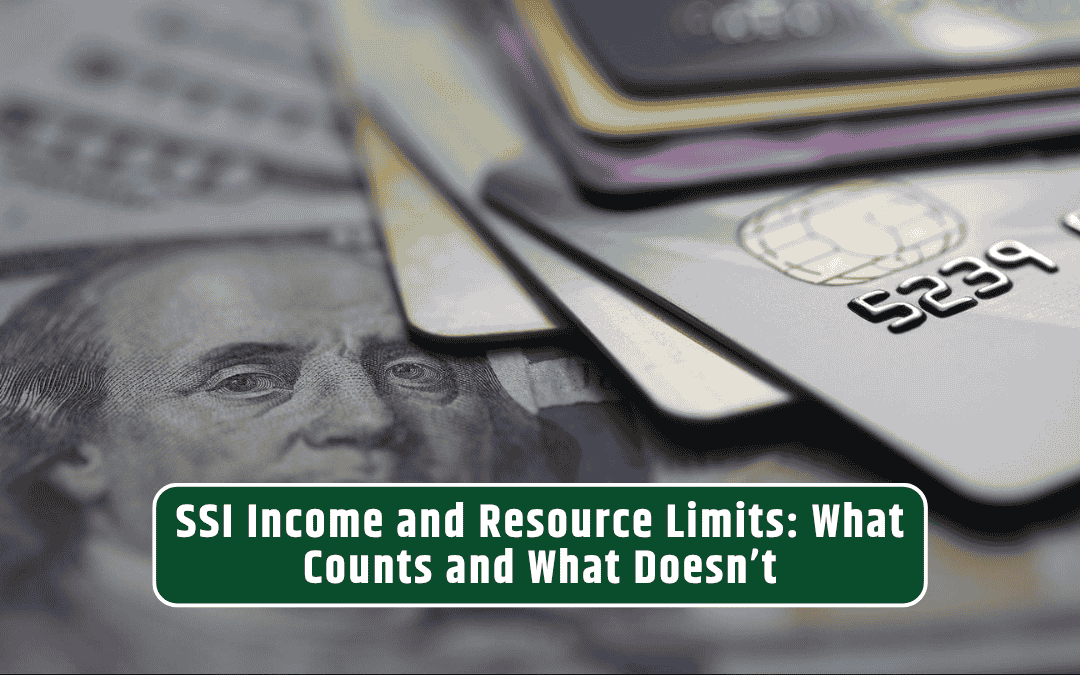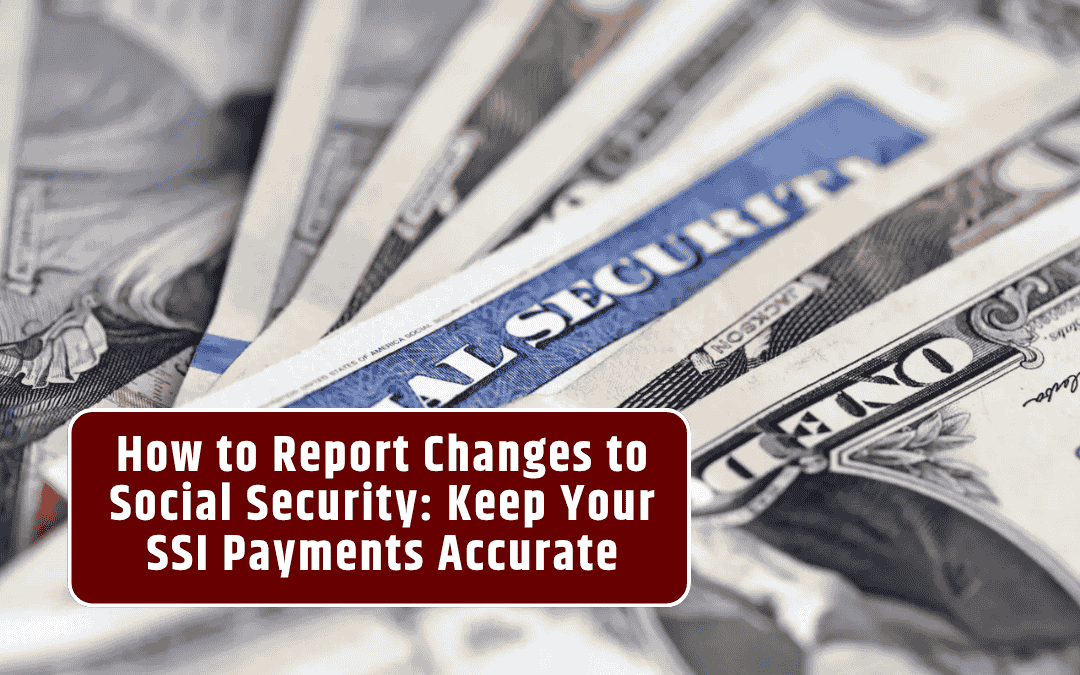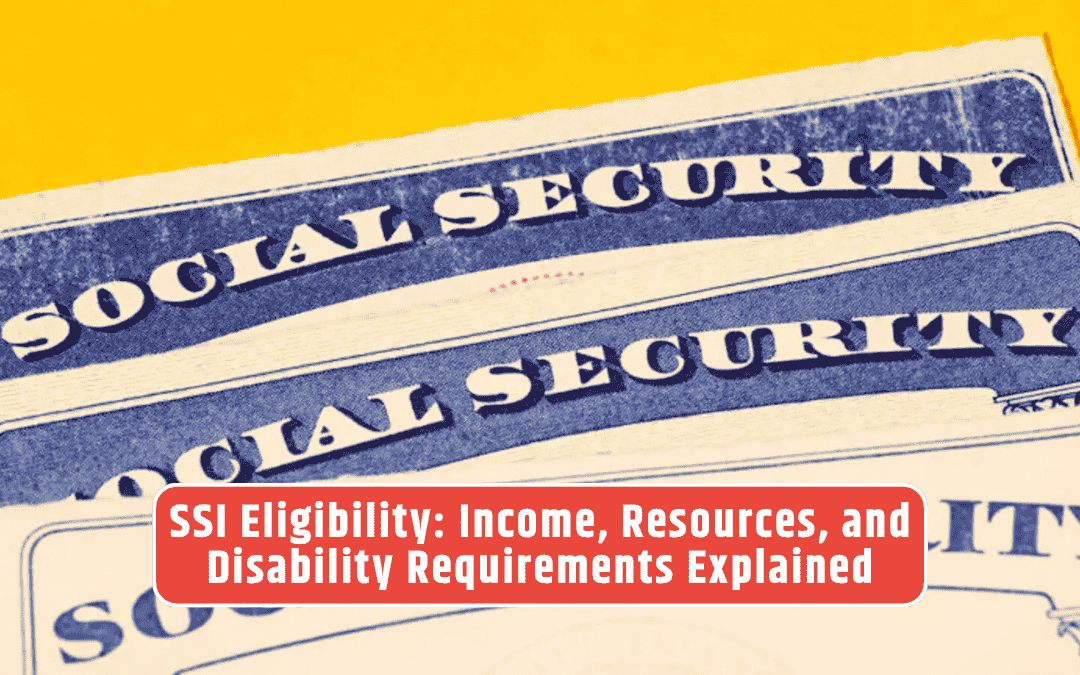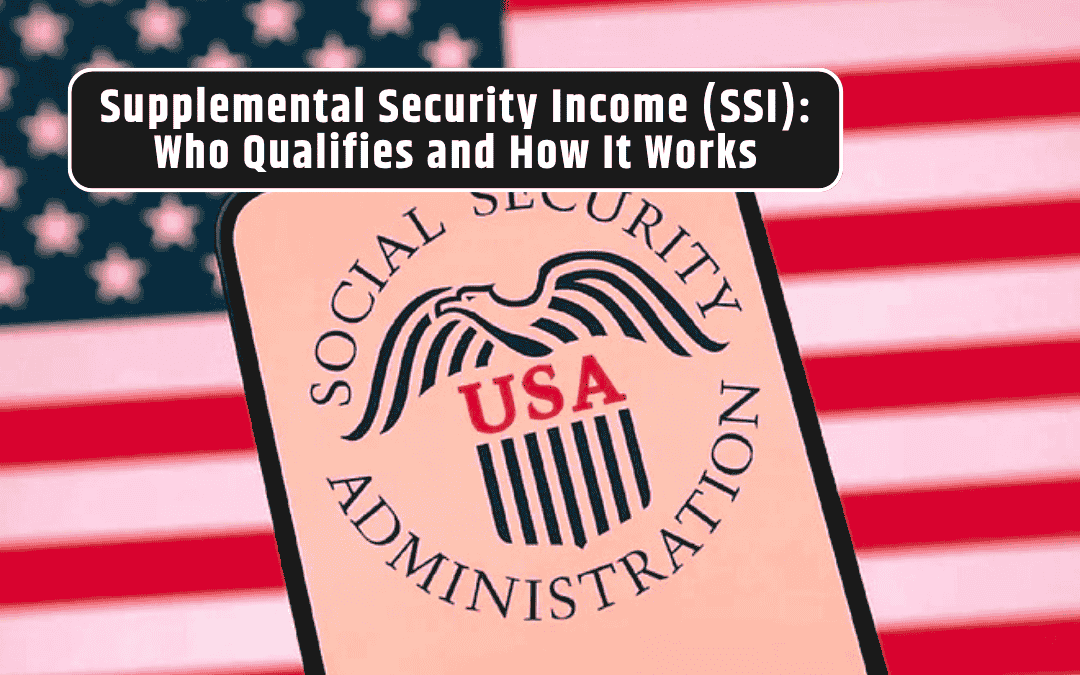To qualify for Supplemental Security Income (SSI), the Social Security Administration (SSA) looks at two main financial factors — income and resources.
- Income refers to the money or assistance you receive, such as wages, Social Security benefits, pensions, food, or housing.
- Resources are things you own that have monetary value, such as vehicles, cash, or bank accounts.
The SSA reviews both categories carefully to determine whether you meet the program’s financial eligibility requirements.
What Counts as Income
Income includes most forms of money or support you receive during the month. This can include:
- Wages from employment
- Social Security retirement or disability benefits
- Unemployment compensation or pensions
- Financial help from friends or relatives
- Free or reduced-cost food and housing
These amounts are used to determine whether your total monthly income falls below SSI eligibility limits.
Income Limit Exceptions
Not all forms of assistance are counted as income when determining your SSI eligibility. Certain types of benefits and support are excluded, meaning they don’t reduce your SSI payment or affect your eligibility.
Here are some common exceptions that do not count toward your income limit:
- State SSI supplement payments
- Supplemental Nutrition Assistance Program (SNAP) benefits (formerly food stamps)
- Section 8 housing vouchers
- Rent rebates or property tax refunds
- Temporary Assistance for Needy Families (TANF)
- Certain work-related expenses for people who are blind
- Certain impairment-related expenses for people with disabilities
These exceptions help ensure that SSI recipients can receive necessary support without automatically losing eligibility for benefits.
States With Higher Income Limits
Your monthly income limit for SSI can be higher if you live in certain states. That’s because some states provide supplemental payments or have cost-of-living adjustments that increase the overall threshold.
For example, states like California, New York, and Massachusetts often offer additional SSI supplements that raise income limits and monthly benefit amounts.
The best way to confirm your state’s policy is to contact your local Social Security office or visit your state’s Department of Human Services website.
What Counts as a Resource
Resources are things you own that have value and could be converted to cash. The SSA considers these when reviewing your SSI application. Common resources include:
- Money in checking or savings accounts
- Stocks, bonds, or mutual funds
- Extra vehicles
- Real estate (other than the home you live in)
To qualify for SSI, your resources must be below these federal limits:
- $2,000 for individuals
- $3,000 for couples
If you’re a parent applying for a child, these limits may increase by $2,000.
Resource Limit Exceptions
Certain items you own are not counted toward your SSI resource limit. These exclusions are designed to protect essential property and help you maintain stability.
Things that usually don’t count as resources include:
- Your home and the land it’s on, as long as you live there
- One vehicle per household, regardless of its value
- Most personal belongings and household goods, such as clothing and furniture
- Property you can’t use or sell, such as land held jointly or items tied up in legal restrictions
These exceptions make it easier for SSI applicants to keep necessary possessions while still qualifying for benefits.
Managing Your Income and Resources
To keep your SSI benefits, it’s important to report any changes in income, resources, or living arrangements promptly. Even small changes can affect your payment amount or eligibility.
You can report updates through your my Social Security account, by using the SSI Mobile Wage Reporting app, or by calling or visiting your local SSA office. Reporting regularly ensures you receive the correct benefit amount and helps prevent overpayments.
The Bottom Line
Understanding what counts — and what doesn’t — toward your SSI income and resource limits can help you stay eligible for this important program.
By tracking your finances, knowing which benefits are excluded, and reporting changes quickly, you can make sure your SSI payments remain accurate and consistent.
FAQs
What counts as income for SSI eligibility?
For SSI, income includes money and support you receive such as wages, Social Security benefits, pensions, unemployment, and even food or housing assistance. The Social Security Administration uses this information to determine if your income falls below the eligibility threshold.
What types of income do not count toward SSI limits?
Some income sources do not count toward SSI eligibility. These include state SSI supplement payments, SNAP benefits (food stamps), Section 8 housing vouchers, rent rebates or property tax refunds, Temporary Assistance for Needy Families (TANF), and certain work-related expenses for people who are blind or have disabilities.
Do food stamps or housing vouchers affect my SSI benefits?
No. Benefits from the Supplemental Nutrition Assistance Program (SNAP) and Section 8 housing vouchers do not count as income for SSI. You can receive both SSI and these forms of assistance without reducing your monthly SSI benefit.
What are the SSI resource limits for 2025?
To qualify for SSI, your resources must not exceed $2,000 for individuals or $3,000 for couples. Resources include cash, bank account balances, stocks, or property other than your primary home. For parents applying for a child, the resource limit increases by $2,000.
What resources are excluded from SSI eligibility?
Certain items do not count toward your SSI resource limit, such as your primary home and the land it’s on, one vehicle per household, personal belongings, household goods, and property you cannot sell or access. These exclusions ensure you can keep essential assets and still qualify for SSI.
Can income and resource limits vary by state?
Yes. Some states offer supplemental SSI payments or have higher income limits. For example, states like California, New York, and Massachusetts often provide additional benefits that increase the income threshold for eligibility. Check with your local Social Security office to learn about your state’s SSI rules.









